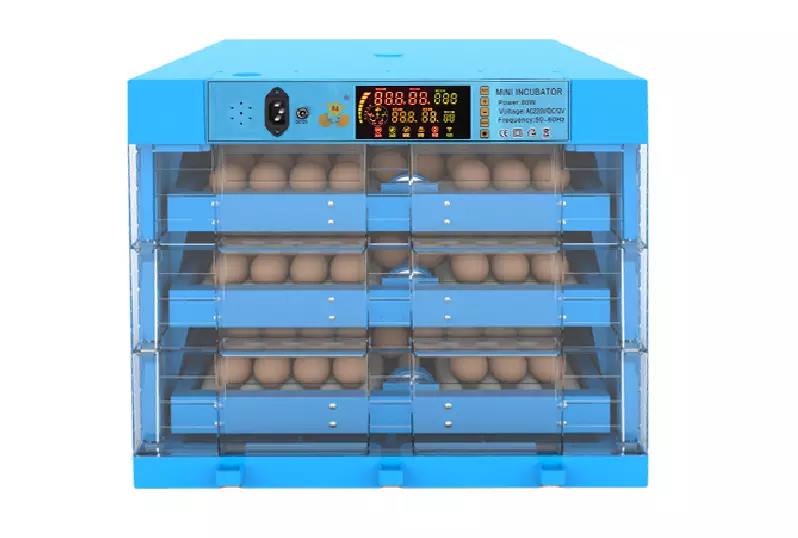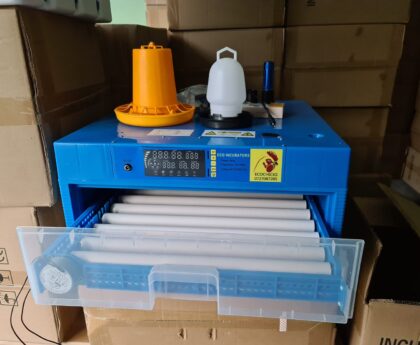Hatching equipment refers to the tools and devices used to hatch eggs artificially. There are several types of hatching equipment available, depending on the specific needs and requirements of the user. Here are some examples:
- Incubator: An incubator is a device that is used to regulate temperature, humidity, and ventilation to create an optimal environment for hatching eggs. It can be either manual or automatic and can come in various sizes depending on the number of eggs being hatched.
- Egg Turner: An egg turner is a device that rotates the eggs automatically to ensure that the embryos are evenly distributed in the egg and prevent them from sticking to the eggshells.
- Thermometer/Hygrometer: These tools are used to measure the temperature and humidity levels in the incubator to ensure that they are within the optimal range for hatching eggs.
- Candling device: Candling is the process of shining a light through the egg to check the development of the embryo. Candling devices can be simple handheld flashlights or more sophisticated electronic devices with magnifying lenses.
- Hatch monitor: A hatch monitor is a device that measures the temperature, humidity, and other environmental factors in the incubator and sends alerts to the user when there is a deviation from the optimal range.
- Brooder: A brooder is a device used to keep newly hatched chicks warm and provide them with the necessary nutrients and water.
- Egg candler: An egg candler is a device that allows you to check the fertility of an egg before incubating it. It does this by illuminating the egg and highlighting any cracks or imperfections.
- Hatching mat: A hatching mat is a soft, cushioned surface that provides a comfortable and safe place for newly hatched chicks to rest and dry off.
These are just a few examples of hatching equipment. The specific tools and devices needed will depend on the type of eggs being hatched and the preferences of the user.


